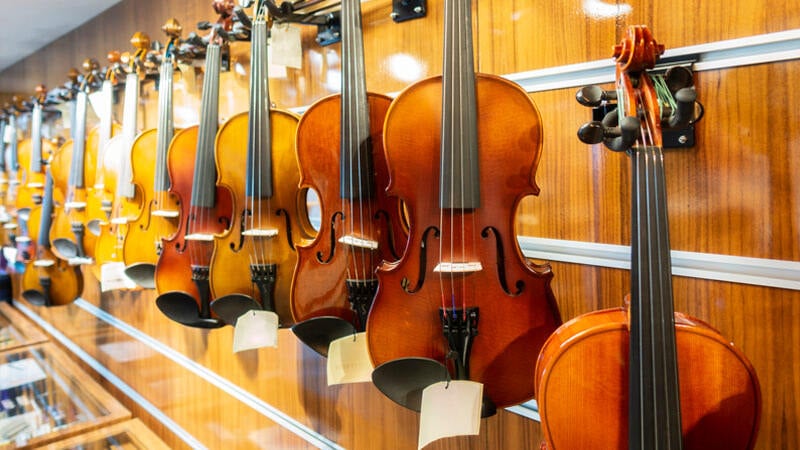Home /
Instruments & More
Protect Your Sound: Essential Instrument Care Tips
Published by StringOvation Team on March 12, 2025

Maintaining the condition of your musical instruments is essential to ensuring they produce the best sound possible. Whether you play a guitar, violin, piano, or any other type of instrument, proper care and maintenance are vital to preserving the instrument's integrity and longevity. In this blog post, we'll discuss the importance of humidity control in instrument care and provide tips for keeping your instrument in top shape.
Here are several tips for keeping your instrument in top shape:
- Clean your instrument regularly to remove dirt, dust, and grime that can accumulate over time. Use a soft, lint-free cloth to wipe down the instrument, being careful not to scratch or damage the finish. You can also use a mild cleaner specifically designed for musical instruments to remove stubborn dirt and grease.
- Inspect your instrument for any signs of damage, such as cracks, loose fittings, or worn-out strings. Addressing these issues promptly can prevent further damage and help maintain the instrument's sound quality.
- Store your instrument properly when not in use. Keep it in a protective case or stand to shield it from dust, moisture, and accidental damage. Avoid exposing your instrument to direct sunlight or extreme temperatures, as this can cause the wood to warp or the finish to fade.
- Make sure to loosen the strings on your instrument before storing it for an extended period. This can help relieve tension on the neck and prevent warping or damage to the instrument.
- Consider investing in regular maintenance and servicing for your instrument. Professional technicians can inspect and adjust the instrument to ensure it's performing at its best.
- And last but not least let us talk about humidity control. One of the most critical aspects of instrument care. Changes in humidity can cause wooden instruments to warp, crack, or swell, affecting their tone and playability. Instruments are made of organic materials that can be sensitive to fluctuations in temperature and humidity. For example, if the humidity levels are too low, the wood can dry out and become brittle, leading to cracks and other damage. On the other hand, if the humidity levels are too high, the wood can absorb excess moisture, causing it to swell and potentially affect the instrument's playability. To maintain the proper humidity levels for your instrument, it's important to invest in a hygrometer, a device that measures the relative humidity in the air. The ideal humidity level for most instruments is between 40-60%. If the humidity levels in your home or practice space fall outside of this range, you may need to invest in a humidifier or dehumidifier to regulate the moisture in the air. Additionally, storing your instrument in a climate-controlled environment can help protect it from extreme changes in humidity.
Taking good care of your instrument will enhance its sound quality and longevity. Regular cleaning, proper storage, and attention to humidity are key to preserving your instrument's integrity.
